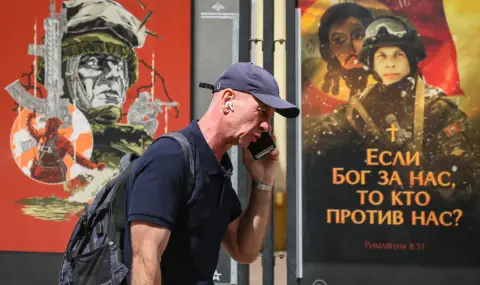When he signed his contract with the Russian Ministry of Defense, the 21-year-old man from Sri Lanka, who was a migrant worker in Russia, he did not expect that he would end up at the front in Ukraine. He learned about the possibility of joining the Russian army from a compatriot who assured him that he would not be sent to the front, as foreigners became “helpers”. On the other hand, if he had signed, he would have solved the issue of staying in Russia - he and his parents would have received Russian citizenship.
DV's interlocutor admits that this is exactly what made him sign the contract – the possibility to legalize his stay in Russia. Signed with the military in February 2024, promised a salary of about $2,300 plus possible additional payments. After two months of service in the rear, Russia sent him to the vicinity of Donetsk, where fighting is taking place. He told his commander that he wanted to return to Sri Lanka, but was threatened that if he escaped, he could be sent to a Russian prison for 15 years. He was not even allowed to go to the store alone, but always accompanied. According to him, the detachment included citizens of Nepal, India, Kyrgyzstan and Tajikistan.
Russia forces foreigners to sign contracts
Even in his first battle at the front, the man from Sri Lanka was wounded and subsequently captured by the Ukrainian military. DV met and spoke with him in a Ukrainian military field hospital - on the condition that he would keep his identity a secret.
In June, Bloomberg reported, citing European officials, that Russia was forcing thousands of migrant workers and foreign students to sign contracts with the Russian military. Otherwise, they would not renew their visas. “ Africans were detained and forced to choose between deportation and participation in the war,” says the DV source.
Recently, the head of Russia's Investigative Committee, Alexander Bastrykin, announced that Russian authorities had found 30,000 migrants who had recently obtained Russian citizenship but had not registered for military service. According to him, a third of them have already been sent to the front in Ukraine.
"Only for money, for big money"
"We are very, very poor" - this is how a 35-year-old citizen of Nepal described the life of his family. DV spoke with him in July in a prisoner of war camp in western Ukraine - also on the condition that he remain anonymous. In Nepal, the man earned as a taxi driver up to 400 dollars a month – grossly insufficient to support his wife and two children as well as his parents. His friends from India told him about the opportunity to earn money in the Russian army and the Nepali agreed. “Only for money, for big money“ - the man explains his motivation for agreeing to this move.
The Nepali arrived in Russia in October 2023 and after a quick medical examination was sent along with 60 other foreigners to a training center on the outskirts of Moscow. There, the man signed a one-year contract with a salary of 2,000 dollars. Initially served in the rear as a kitchen assistant - together with another foreigner, a Chinese citizen. According to him, there were a total of 23 other Nepalis and three Indians in the unit. The remaining 11 people were Russians. The fighters used an automatic translation system to understand each other.
After a month, the Nepalese found himself near Donetsk. There he asked his commander to let him go home, but he told him that it was impossible to terminate the contract. In April, the Nepali was injured. At the front, he saw Ukrainian soldiers, whom he asked for help. “I took off my helmet, bulletproof vest, put aside the machine gun and said: please help me, I am from Nepal”, the man says.
Primarily citizens from poor countries are recruited
Among those captured by the Ukrainian army are citizens of various countries - Sierra Leone and Somalia, Sri Lanka and Nepal, Cuba. “They are mainly from the global south, from poor countries,” Petro Yatsenko, spokesman for the Coordination Headquarters of the Main Intelligence Directorate of the Ukrainian Ministry of Defense, told DV. A Cuban who signed a contract with the Russian army has stated that he lived on $7 a month in his homeland.
Foreigners are mainly recruited on the Internet – through targeted advertising on social networks. Another way is campaigning directly abroad – recruiters go to enterprises and promise workers a high salary and service in Russia itself, not at the front, says Yatsenko.
Nepal has banned its citizens from working in Russia
According to CNN, the Russian Federation has already recruited about 15,000 citizens of Nepal. Relatives of Nepali mercenaries have asked the government in Kathmandu to do what is necessary to return their relatives home. At the same time, the authorities insist that they have information about far fewer Nepalis serving in the Russian army - about 200 people, of whom 13 have died. However, the government has banned its citizens from traveling to the Russian Federation for work. Meanwhile, Kathmandu police have arrested 18 people suspected of being involved in the schemes.
In March, seven Indians recorded a video appeal that the Russian Federation had fraudulently recruited them – she promised them a civilian job. Four people suspected of involvement in the scheme were later arrested in India. Meanwhile, Prime Minister Narendra Modi has agreed with Russian President Putin to repatriate Indian nationals fighting on Russia's side.
According to Ivan Chuvilyaev of the anti-war movement "Catch the Forest", which helps soldiers to desert, Russia applies the same approach to recruiting Russians: they use the fact that they do not know the laws and are in a difficult financial situation, says the human rights activist .
Author: Anna Sokolova
